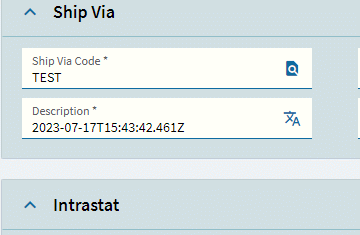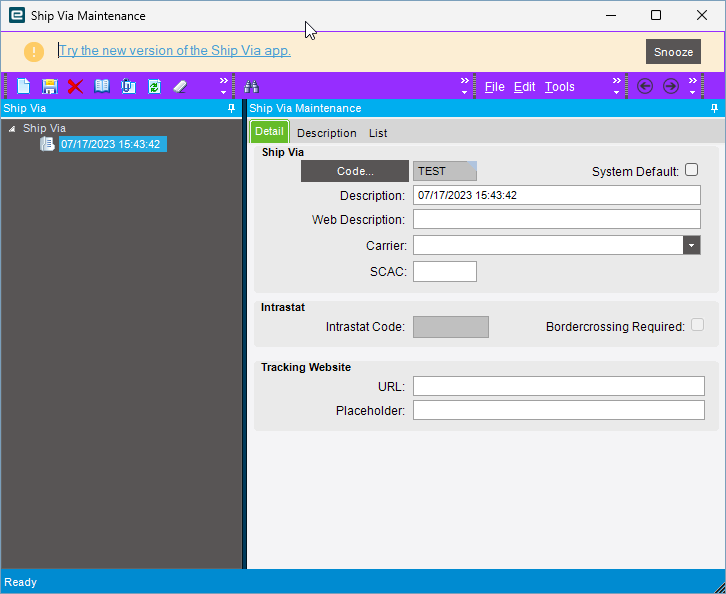That used to be the way for Microsoft to serialize dates to JSON, until they conformed to ISO 8601.
Yes but Epicor is Epicor… if you look at their OData DataWriter under the microscope you will see it doing stuff like:
if (culture != null) {
newDate = dt.ToString(request.culture.DateTimeFormat.ShortDatePattern);
}
else
{
newDate = dt.ToString("s");
}
But if you confirmed then its probably somewhere else, something else ![]()
Good question for @Olga and @josecgomez how come Epicor is transforming nvarchars/strings
We need a laughing popcorn emoji.

On second thought, maybe not, that’s oddly terrifying.
Following, had this after BST kicked in.
I had a scenario were a UBAQ in a dashboard kept subtracting a date by a day were the time element was midnight.
I think we covered that in these two threads:
It happens in Kinetic UI too!
That makes sense, as Kinetic UI is built on REST.
Just enter 2023-07-17T15:43:42.461Z in any description, address or whatever field, save, and refresh.
It does not happen in the Classic Client.
Kinetic:

It definitely is in the Write because when I refresh the Classic Client:
Have not tried Kinetic UI in the smart client yet, just the browser.
That looks more like the response than the request.
I am definitely seeing the original value in the request, using Firefox Web Developer Tools.
Postman would beg to differ ![]()
Damn devs and their Easter eggs! Not so fond of this one ![]()

Working as Designed™
Just when I found the perfect format to use as part numbers…
I take that back it is before it hits a BPM, not necessarily the client. Long Day.
Just store them backwards:
Z164.24:34:51T71-70-3202
I was just going to try how Epicor reacts to reverse ISO dates.
I was expecting “Paul is dead”.
That’s what ISO 8601 is for. REST is definitely converting from the type it’s given to another representation - given a SQL date it turns that into a UTC datetimeoffset without actually converting to UTC time rather than being a good little connector and returning the closest available representation (a naive calendar date). That’s the way it’s always been broken, but now the offset bug adds an unfortunate new layer of compunding oops.
The worrying part about this one is that @klincecum 's example is Z-format UTC datetime instead of a timezoneoffset. Inconsistent REST configurations in the wild rule out straightforward fixes.
Try this one: Z000.00:00:00T90-11-6691
My point is that there is no way to tell whether a JSON element is a date by looking at the syntax. You need to know it represents a date, or guess it by examining the value. And it looks like guessing is taking place.
Whatever they’ve done, they’re gonna need to patch this. Parsing dates should not be done until the type is known to be a date.
